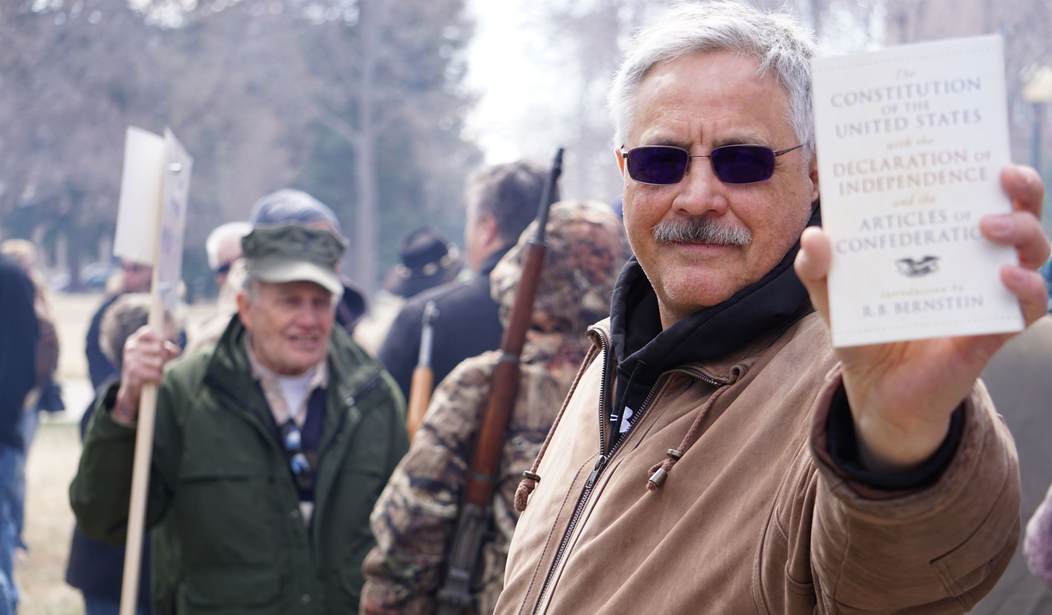During President Donald J. Trump's impeachment trial, we'll hear a lot of talk about our rules for governing. One frequent claim is that our nation is a democracy. If we've become a democracy, it would represent a deep betrayal of our founders, who saw democracy as another form of tyranny. In fact, the word democracy appears nowhere in our nation's two most fundamental documents, the Declaration of Independence and the U.S. Constitution. The founders laid the ground rules for a republic as written in the Constitution's Article IV, Section 4, which guarantees "to every State in this Union a Republican Form of Government."
John Adams captured the essence of the difference between a democracy and republic when he said, "You have rights antecedent to all earthly governments; rights that cannot be repealed or restrained by human laws; rights derived from the Great Legislator of the Universe." Contrast the framers' vision of a republic with that of a democracy. In a democracy, the majority rules either directly or through its elected representatives. As in a monarchy, the law is whatever the government determines it to be. Laws do not represent reason. They represent power. The restraint is upon the individual instead of the government. Unlike that envisioned under a republican form of government, rights are seen as privileges and permissions that are granted by government and can be rescinded by government.
Here are a few quotations that demonstrate the contempt that our founders held for a democracy. James Madison, in Federalist Paper No. 10, wrote that in a pure democracy, "there is nothing to check the inducement to sacrifice the weaker party or the obnoxious individual."
At the 1787 Constitutional Convention, Edmund Randolph said that "in tracing these evils to their origin every man had found it in the turbulence and follies of democracy." Alexander Hamilton agreed, saying: "We are now forming a republican government. (Liberty) is found not in "the extremes of democracy but in moderate governments. ... If we incline too much to democracy, we shall soon shoot into a monarchy."
Recommended
John Adams reminded us: "Remember, democracy never lasts long. It soon wastes, exhausts, and murders itself. There was never a democracy yet that did not commit suicide."
John Marshall, the highly respected fourth chief justice of the U.S. Supreme Court observed, "Between a balanced republic and a democracy, the difference is like that between order and chaos."
Thomas Paine said, "A Democracy is the vilest form of Government there is."
The framers gave us a Constitution replete with undemocratic mechanisms. One constitutional provision that has come in for recent criticism is the Electoral College. In their wisdom, the framers gave us the Electoral College as a means of deciding presidential elections. That means heavily populated states can't run roughshod over small, less-populated states.
Were we to choose the president and vice president under a popular vote, the outcome of presidential races would always be decided by a few highly populated states, namely California, Texas, Florida, New York, Illinois and Pennsylvania, which contain 134.3 million people, or 41% of our population. Presidential candidates could safely ignore the interests of the citizens of Wyoming, Alaska, Vermont, North Dakota, South Dakota, Montana and Delaware. Why? They have only 5.58 million Americans, or 1.7% of the U.S. population. We would no longer be a government "of the people." Instead, our government would be put in power by and accountable to the leaders and citizens of a few highly populated states. It would be the kind of tyranny the framers feared.
It's Congress that poses the greatest threat to our liberties. The framers' distrust is seen in the negative language of our Bill of Rights such as: Congress "shall not abridge, infringe, deny, disparage, and shall not be violated, nor be denied." When we die and if at our next destination we see anything like a Bill of Rights, we know that we're in hell because a Bill of Rights in heaven would suggest that God couldn't be trusted.

























Join the conversation as a VIP Member